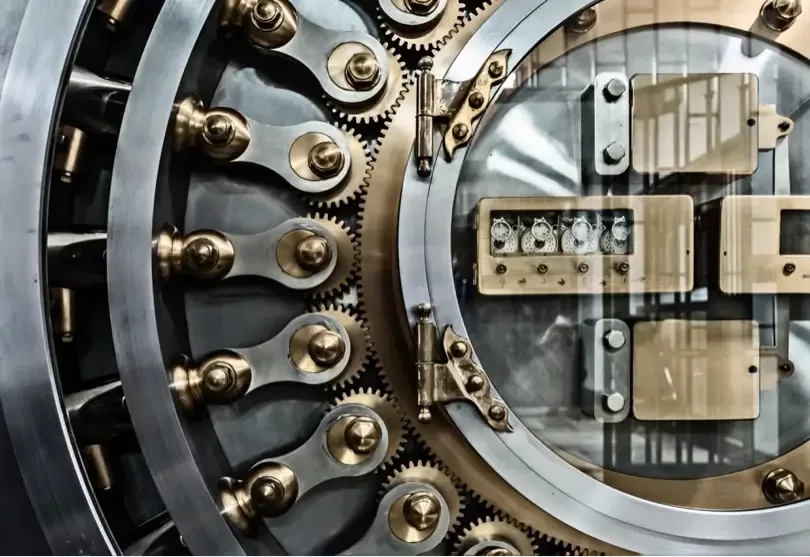Barbadian Economists Take Global Stage: Central Bank Reserves and Bitcoin

In December 2015, a research paper from Barbadian economists Winston Moore and Jeremy Stephen was published, leading to much discussion in the international bitcoin community. Several top bitcoin news sites, including CoinDesk and BraveNewCoin picked up the story, pushing the paper to the number three spot in the global list of academic research in the field.
The impact was far reaching, with the story receiving coverage both internationally, and even locally in Barbados’ leading newspaper the NationNews, and on local television.
So what was the research from these economists that caused such a stir? Countries like Barbados hold a fixed exchange rate with the United States Dollar (USD). Under a fixed exchange rate, Barbados’ Central Bank is committed to maintaining a given price of the Barbados Dollar (BBD) in terms of USD by participating, when necessary, in the foreign exchange market as a buyer or seller of Barbados’s currency to ensure that supply and demand are equated at the chosen price.
When demand for BBD becomes weaker than supply, maintaining equality of supply and demand for the currency at the chosen price involves the Central Bank stepping in as an additional demander of BBD. The Central Bank does so by using its foreign exchange reserves to buy the local currency. However, it can only do so until it runs out of foreign exchange reserves. And if it is unable to do so then the result would be a ‘speculative attack’ on the Barbados currency.
The paper written by Moore and Stephen discussed the usefulness of the Central Bank of Barbados holding bitcoin in its foreign currency reserve in order to minimise (and possibly nullify) any speculative attacks on the Barbados dollar using bitcoin.
Prior to this paper, the question of whether a Central Bank should hold bitcoin in the foreign exchange reserves has been largely unexplored using a strong analytical lense. Moore and Stephen analysed, using counterfactual simulations, what would happen if bitcoin would have been in the Central Bank of Barbados’ FX reserves over the last few years.
This was done to address one of the main concerns persons commonly have with bitcoin – the volatility. It is commonly, and falsely, assumed that bitcoin is too volatile to ever be kept as a savings asset; or, in this case, as part of a reserve portfolio.
the econometric results suggest that adding bitcoin to the reserve portfolio of the central bank would not have significantly increase volatility of the portfolio. And it goes further to suggest that the addition of bitcoin to the portfolio could provide opportunities to offset exchange rate depreciations against some of the major currencies such as the Pound and the Euro.
In the their own words:
In general, portfolios denominated in Pounds, Canadian Dollars and Euros all pretty much follow a similar pattern. This result is not surprising given that most major currencies revert to the purchasing power parity equilibrium against the US dollar. The first scenario, where it is assumed that 0.01 percent of reserves were invested in bitcoin or any other of the other major currencies held by the Central Bank of Barbados from November 2010 to April 2015, suggest that the volatility of reserves would have been quite similar over the period. However, the bitcoin reserves at the end of April 2015 would have been $291,926 – more than 20 percent greater than had these same funds been held in balances of any other major currency.
As the ratio increases, then end of period balance diverges significantly from the actual outcome due to the appreciation of bitcoin against the US dollar that occurred over the period. With just 0.1% of reserves in bitcoin, balances at the end of April 2015 would have been more than twice the actual amount; 19 times greater with 1% of reserves in bitcoin; and, some 100 times greater with a relatively sizeable 5% of reserves in bitcoin.
These extracts highlight another important suggestion of the paper: the Central Bank can plausibly use bitcoin as part of an investment strategy.
But what about speculative attacks? If there is a speculative attack on BBD with bitcoin then the Central Bank would have to own enough bitcoin to purchase BBD and maintain the exchange rate. If, however, the central bank buys significant amounts of bitcoin then this would plausibly also cause the value of bitcoin to increase relative to BBD – which in itself is a speculative attack.
This would only be a possibility if significant amounts of BBD start to be sold for bitcoin, for whatever reason. The authors do not see this as a reasonable concern in the short term.
In the paper, Moore and Stephen also suggested that the Central Bank of Barbados become an active trader of bitcoin in order to use the blockchain technology to transmit currency. The primary purpose of this would be to replace or supplement the current SWIFT and RTGS systems and would work by the transmitted cryptocurrency becoming nothing more than a trading mechanism to balance accounts between the seller and buyer of a particular currency.
This process is called settlement. The ability for blockchain technology to increase the efficiency, reduce costs and minimise risks associated with settlement has only recently began to be explored. Major financial institutions like JPMorgan & Chase, Goldman Sachs, Santander, and even the Bank of England have begun exploring the use of blockchain technology for this reason.
Moore and Stephen have produced a paper that highlights how bitcoin and blockchain technology can be used to disrupt many aspects of the financial sector. Discussions in the bitcoin community can often be economically fragile, but these two Barbadian economists have validated the community with economic rigour.
For an in-depth discussion of their research, Moore and Stephen were recently featured on the Epicenter Bitcoin podcast:




